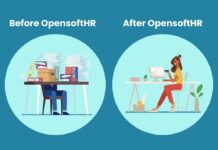The process of payroll largely involves the payment of salaries to employees for the work they do in a company. Seems pretty simple right? However it is very common that human errors occur during each payroll cycle, especially if your company processes payroll manually or perhaps in excel. Payroll in a business is synonymous to the blood that flows through our body: essential for low employee turnover and morale of employees. If there is a bump along the way, the business cannot function well and in extreme cases, potentially collapse.
Here are some of the common mistakes that you may want to look out during Payroll processing:
1. Lack of proper update of employee information
It is often overlooked by the HR department, to ensure the employee database is kept up to date. The employee database should consist of information that includes the nationality, date of birth, immigration status (where applicable), join date of an employee…and the list goes on. Somehow perhaps due to the busy operations of businesses, especially for SMEs when mostly everyone multi tasks at work, this employee database does not undergo regular checks for discrepancies.
It goes without saying that just the slightest inaccuracy in information may end up in mistakes that are time consuming to amend and cause frustration to your staff. Beyond that, critical information such as immigration status if not updated in the employee database, may give rise to the wrong CPF deductions and contributions. This results in your company having to be subject to penalties and additional costs which could have easily been prevented in the first place if there was a proper system in place.
2. Unaware of latest payroll regulations
Aside from statutory CPF contributions, employers need to also be aware of several other statutory obligations that relate to payroll such as: the AIS (Auto Inclusion Scheme) which pertains to IRAS requirements of companies who employ more than 15 employees to submit company payroll details via an electronic system, or that companies are required under a recent amendment to the employment act to issue only itemized pay slips to all employees. Failure to comply to these regulations will also result in your company incurring penalties. If your company processes payroll manually, it can be a hassle to constantly keep up to date about the updates to relevant regulatory requirements and keep within compliance.
3. Missing Payment schedules
Having a systematic payment schedule is vital to keeping high levels of morale of employees in your company. Just a slight delay in payment to your staff may also affect their personal expense plans. Not keeping up to CPF payment deadlines will result in your company having to bear non-compliance penalties.
4. Potential risk of data compromise
Payroll information as we all know is strictly confidential. However, with a manual payroll processing system where specific individual employees are given the liberty of managing such sensitive information like employee personal data, salary and benefits, it is very easy for the data to be compromised and wind up in undesirable company. Compromising payroll data will have immensely severe repercussions on the business, with employees losing trust in management and having to deal with legal issues.
If you have a proper payroll system with the help of customizable software that ensures your payroll is regularly up to date with government regulations and expertise of payroll service providers, you will not only prevent mistakes and incurred penalties but also improve employee morale and take away the unnecessary headache for your business.
AUTOMATE WITH Opensoft Payroll SYSTEM
 Opensoft Payroll is designed for SME. It comes feature-packed with a list of automation and is one of the most user-friendly and powerful payroll software for SME today!
Opensoft Payroll is designed for SME. It comes feature-packed with a list of automation and is one of the most user-friendly and powerful payroll software for SME today!
 Home
Home















